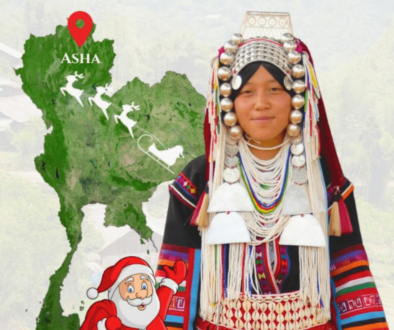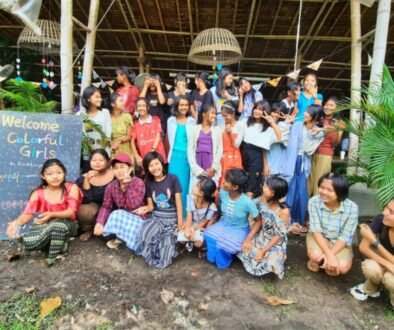Valuable Water
Witnessing Songkran Festival in Thailand is surely a great opportunity to immerse in Thai culture. However, observing the century old tradition of sprinkling blessed water turning into a massive water fight made me think – not only about the cultural component to it, but much more about our quite carefree use of water.
Most of us take access to clean water for granted. We use it in our everyday lives without thinking much about it. Of course, we all know some kind of water saving measures and employ them every now and then. But in general – do we really appreciate water the way we should?Somehow it is paradox that in some parts of the globe people are thinking about how to reduce water consumption, while in other parts people do not even have access to clean water.
Many remote rural areas in Southeast Asia actually face this problem. Not having direct access to clean water affects sanitation and health and is a major cause for diseases. Therefore, there is a dire need of organizations such as East Meets West Foundation (EMW) and their Clean Water and Sanitation Program. EMW operates various projects in Southeast Asia to help solving the most pressing developmental problems.
Access to clean water and improved sanitation belong to EMW’s top priorities in Vietnam. The Clean Water and Sanitation Program aims to improve health conditions, decrease child mortality and improve overall quality of life for impoverished communities in rural areas.
EMW’s village water system is designed to be a model of community sustainability. This means the approach takes an educational and participatory component into account in order to guarantee a long term positive impact for the community. Before the start of the project the interest and willingness of locals to participate is investigated and villagers are informed about the planned project activities.
EMW provides the technical support and equipment, digging the wells, building a water tower, installing filtration, aeration and chlorination systems and running the distribution pipeline through the village. The villagers contribute by digging the trenches to lay the pipe. Then, each household purchases its own house connections for water, and pays for water consumption. A local person selected to be in charge for collecting the fees is also trained to maintain the system and prepare reports for EMW to monitor the project. The construction of the water system facility is accompanied by trainings on sanitation in order to trigger significant hygiene behavioral change. In general it takes up to 4-6 months to complete a village water system project after having been approved.
Since the launch of the Clean Water and Sanitation Program EMW has built water systems in 152 villages throughout Vietnam, providing ca. 240,000 people with access to clean water. For as little as 20$, one household can be connected to clean, piped water. If you are interested in supporting this program or would like to learn more about EMW’s programs please contact us.



